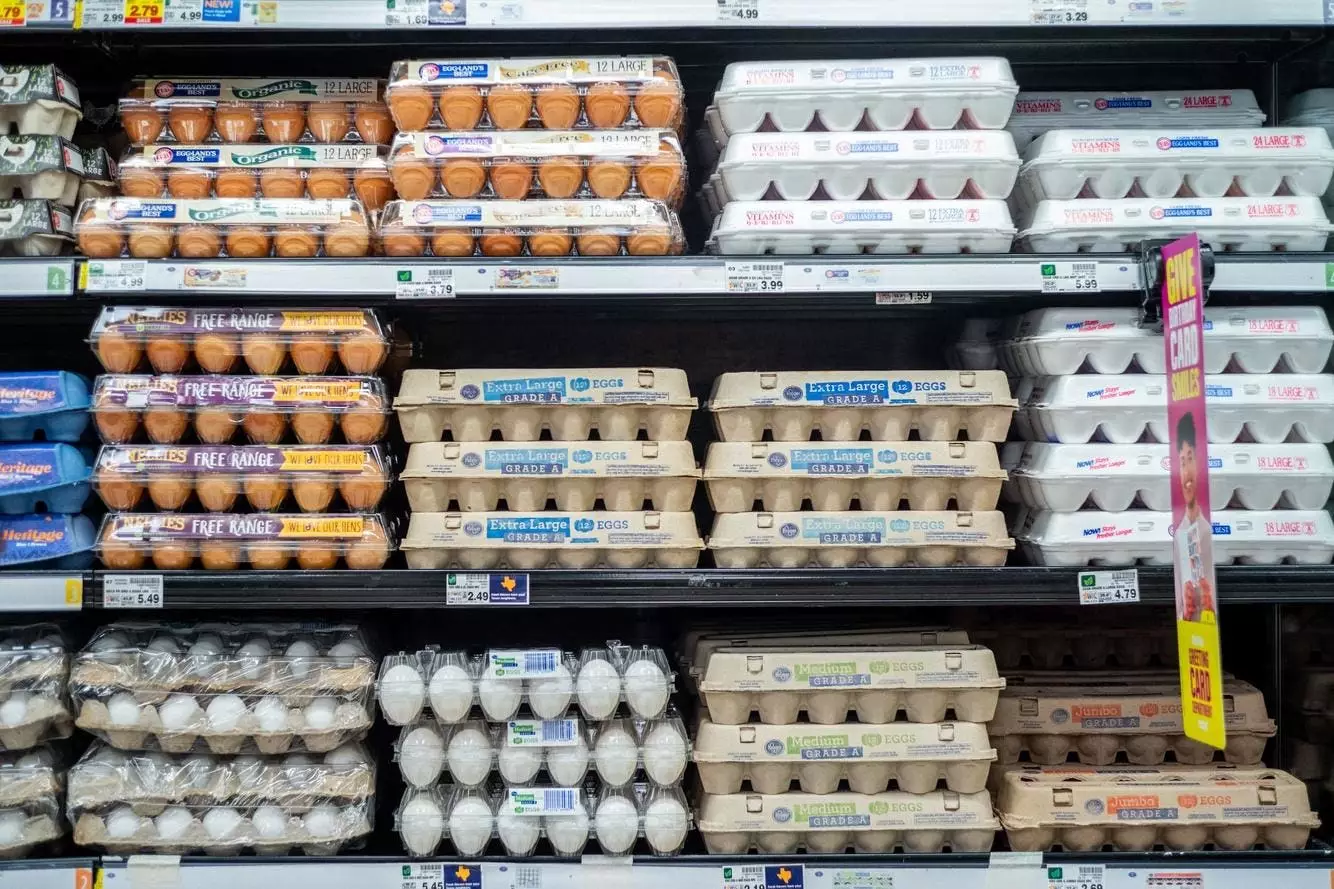The rise in egg prices has become a significant topic of discussion as we move further into 2025. With inflation rates skyrocketing and the Consumer Price Index (CPI) revealing a staggering 53% increase in year-over-year egg prices, this once-humble kitchen staple is no longer simply a budget-friendly item. The ramifications of these price changes extend beyond mere economics; they are reshaping consumer behavior, dietary choices, and even broader culinary trends. The question looms: What does this mean for the future of eggs in American households?
Historically viewed as an affordable and versatile food source, eggs have played an integral role in various diets across the United States. Whether scrambled, boiled, or incorporated into baked goods, they have long held their status as a breakfast favorite. However, as prices have surged, many consumers face unprecedented dilemmas at the grocery store. Notably, recent surveys indicate that over half of egg purchasers have reported stock shortages in their local supermarkets. This has compelled shoppers to rethink the way they approach breakfast and cooking.
The financial strain imposed by inflated prices has pushed many consumers to make calculated decisions. A noticeable trend is the shift towards buying store-brand eggs, which allow for substantial savings. However, some individuals are opting to invest in premium brands, viewing eggs not as a common necessity but as a valuable ingredient worthy of a higher price tag. This bifurcation in consumer purchasing habits illustrates the complex interplay between budget constraints and perceived value.
As shoppers navigate increasing egg prices, we see exciting shifts in dietary patterns. Traditional egg-centric breakfasts, such as the quintessential eggs and bacon, are gradually being abandoned in favor of more affordable options like oatmeal and yogurt. These shifts reveal a broader trend of adaptability among consumers, who are exploring alternative protein sources and ready-to-eat meals. The growth of plant-based substitutes, including tofu scrambles and liquid egg alternatives, further underscores a movement away from conventional egg consumption.
Moreover, companies and local eateries are likely to benefit from this trend, with an uptick in demand for takeout breakfasts that offer savory yet economical alternatives. Consumers are voting with their wallets, and the results are prompting restaurants to diversify their menus to include goods that align with changing preferences and tighter budgets.
The audience assessing how to incorporate eggs into their diets has changed dramatically. Younger generations, particularly Millennials and Gen Z, have demonstrated a willingness to pay higher prices for what they perceive as quality. Their focus on ethical sourcing and organic products illustrates a significant cultural shift where values play a pivotal role in purchasing decisions. By comparison, shoppers from different demographics exhibit diverse spending thresholds, with some opting for budget-friendly options while others prioritize ethical considerations in their food choices.
It is becoming evident that consumer demographics are shaping the market landscape. Regions with higher concentrations of Hispanic and urban shoppers show a higher tendency to purchase premium eggs, blurring the lines between necessity and luxury. The willingness to spend more than $5 per dozen—especially in larger stores—illustrates a willingness for quality over quantity that is characteristic of today’s conscientious consumer.
As we venture further into 2025, the role of eggs in American kitchens is poised for transformation. With inflation creating a significant barrier for many households, questions arise about whether eggs will still be deemed a staple. If current trends persist, we may witness a continual shift towards alternative proteins and bulk purchases, alongside an increase in demand for premium egg products like organic and free-range eggs.
Our long-standing relationship with this versatile food is evolving, driven by economic pressures and a growing emphasis on consumer values surrounding health and sustainability. Ultimately, the perception of eggs is morphing from an everyday essential into a gourmet item, forcing both consumers and food producers to rethink their strategies in stocking and marketing this beloved ingredient. The reshaping of eating habits, coupled with fluctuating availability, means that the simple act of buying eggs may never be the same again.


Leave a Reply